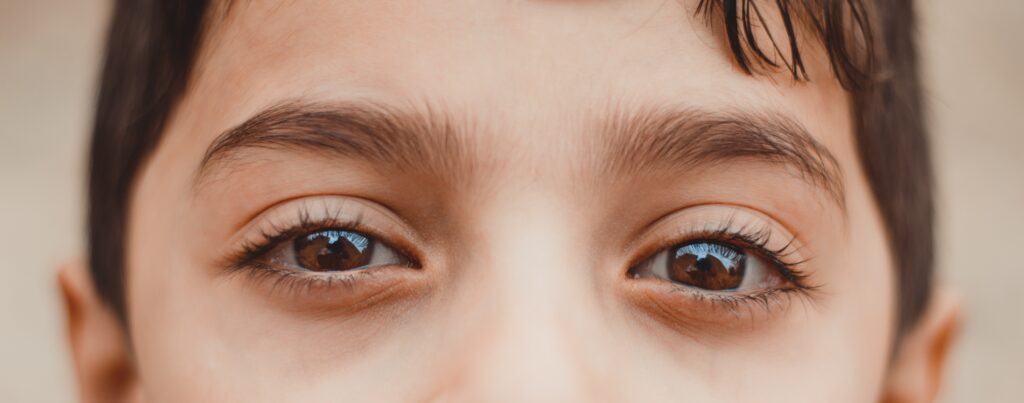Eyelid surgery is a big undertaking, and there are many questions to ask your oculoplastic surgeon during consultation. The best approach is to prepare a list of questions about everything you need to know about the procedure. After consultation, you should feel ready and adequately informed to decide. Here are four sets of questions to ask:
1. Questions About the Oculoplastic Surgeon
Oculoplastic surgeons specialise in performing functional and cosmetic eyelid and facial area surgeries. The eyelid, eye socket and surrounding structures are very delicate and require precision. You need a reputable, trustworthy surgeon with the proper training, experience and skill for the procedure. Ask these questions during the first consultation:
• Which institution did you attend for medical school, residency training and fellowship training program?
• Do you perform specific eyelid surgeries (blepharoplasty, peri-ocular surgeries, ophthalmologic services, upper/lower eyelid)?
• How long have you performed surgeries, and how many procedures have you completed?
• Do you have a license from the state to perform eyelid surgeries? Are you board certified?
• Does your surgical facility have a verifiable accreditation from a national/state-recognised accrediting agency?
• Do you have verifiable references and testimonials from your past eyelid surgeries?
• What is your success rate with patients like me?
Asking questions about the surgeon will help you identify skilled, experienced professionals with a license and board certification. It also helps to build trust between you and the surgeon to focus on getting ready for the procedure. The goal is to find top eyelid surgeons and clinics in your area.
2. Questions About the Surgical Procedure
Undergoing a surgical operation comes with concerns, and you also have specific objectives you want to achieve with the procedure. The consultation offers the best opportunity to learn the ins and outs of the operation, including whether you are the right candidate. Here are some questions to ask your oculoplastic surgeon about the procedure:
• Am I a good candidate for eyelid surgery?
• What does surgery accomplish? Are my goals reasonable?
• Where will the surgery take place?
• Which anesthesia is used in the procedure?
• What steps are involved/what happens during the surgery? How long will it take?
• Are there any side effects, risks or complications? How do you handle such situations?
• How long until I’m discharged from the hospital/clinic?
• Will I have scarring? How long will it take to heal?
• What can I do to enhance the results of the procedure?
• What options do I have if the outcomes don’t meet my expectations?
Questions about the procedure will provide informative answers to determine if you want to follow through or find other solutions. It’s crucial to ask everything you need to know to be comfortable. These questions will also help you understand the limitations and set realistic goals.
3. Questions About Required Preparations
Your surgeon will recommend a few changes in your lifestyle and daily activities to prepare for the procedure. It’s vital to follow all instructions for pre and post-surgery to enhance the outcome and speed healing. You should ask the surgeon all kinds of questions to help you get ready for the operation. Here are some top inquiries:
• For how long should I stop smoking before the procedure?
• What medications, supplements or vitamins should I stop taking? How long in advance do I stop taking them?
• Can I eat, drink and take a shower on the morning of my surgery? Are there any specific outfits I should avoid or wear to the clinic?
• How do I prepare for the day of my surgery? At what time should I arrive at the clinic?
You shouldn’t rush oculoplastic surgeries. A consultation will help you plan for the day of surgery and adjust your lifestyle to be in the best shape and health for the procedure. Good preparation is critical for successful eyelid operation and faster recovery. You should be open and honest with the surgeon about your lifestyle and daily activities.
4. Questions About Post-Procedure Recovery
Plastic and oculoplastic surgeries can leave you incapable of performing your daily activities. In the case of eyelid surgery, you’ll experience discomfort, swelling, double vision and other symptoms. Arranging for someone to pick you from the surgery facility and stay with you for the night of the procedure is vital.
You need to review the following questions in advance to plan for your operation:
• When do I go home after the procedure?
• How will I feel immediately after surgery?
• How long will my recovery take?
• Do I need special medication for recovery?
• Will I need prescribed painkillers?
• How soon can I resume regular activities (washing my face, wearing makeup, going out in public, exercising, driving or going to work)?
• Do I need special gear like an eye patch or glasses?
• When should I come back for a follow-up visit?
• How do I minimise the chances of a complication or scarring?
• Who do I contact in case of a complication or emergency?
• What limitations should I be aware of during recovery?
• Can I maintain long-term results? How?
Consulting a Reputable Oculoplastic Surgeon
Successful oculoplastic surgeries require adequate preparation, specialised procedures by an experienced eye surgeon and proper recovery. London Ophthalmology and Ophthalmic Plastics offer specialised eyelid, eye socket and peri-ocular surgery, and general ophthalmologic services. You can consult our eye surgeon to learn more about oculoplastic operations.







